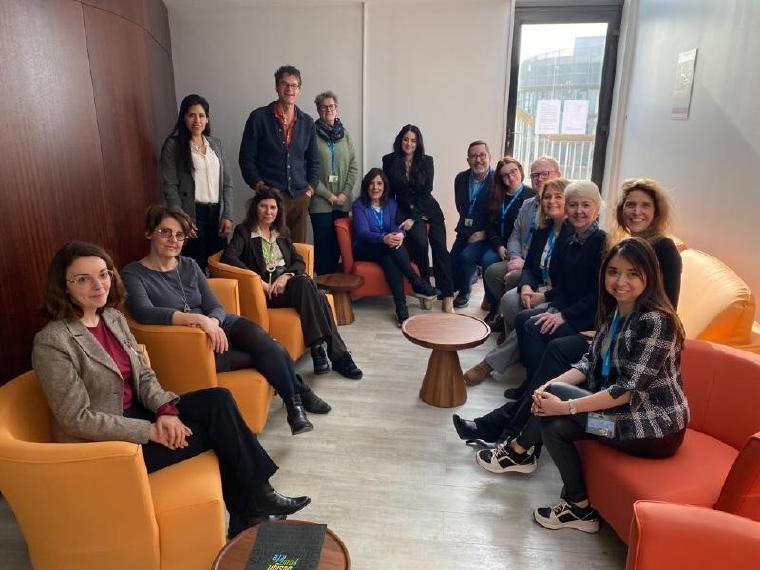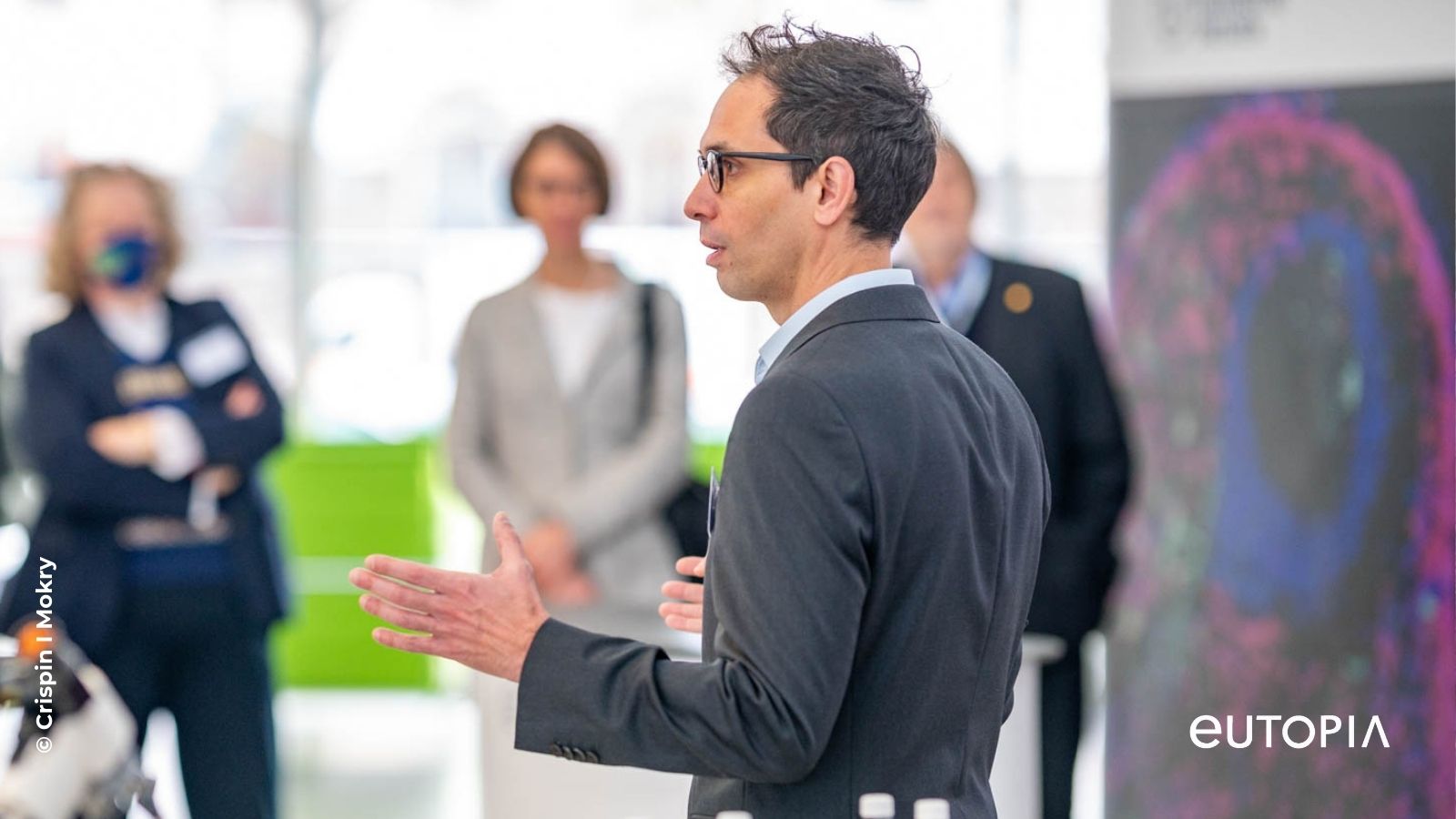
Go to content Navigation Direct access Connection

You are here :

The EUTOPIA’s overall aims are to extend its challenge-led educational model to the development of its research and innovation activities and to tackle two main challenges:
These challenges can only be confronted by developing a joint Human Resources Strategy that considers human capital management’s current challenges within the ten EUTOPIA institutions.
The three objectives of the HR strategy focus on supporting these two broad challenges by contributing to our researchers’ skill development and mobility and attracting and retaining talent at EUTOPIA. Each objective is then linked with a strategic theme of the HR Strategy:
Recruitment is a sensitive topic for all academic institutions, not least because of the significant level of regulation (both internal and external), laws and agreements that govern the process at each EUTOPIA partner institution. The organisation of our institutions can be a significant barrier to cooperation. Only one of the original six EUTOPIA institutions has a centralised model for all their recruitment. The remaining five institutions and the four institutions that joined under the EUTOPIA MORE project have a mixed model whereby some recruitment occurs centrally, whilst most academic appointments occur within faculties or departments.
More than ever, recruitment needs a professional approach that goes beyond having a talk with candidates based on a resumé and past performance. It requires significant training and effort, and that is time that cannot subsequently be spent on the core tasks of our academics: education and research.
The international labour market is also more complex than a few years ago, and the pool of candidates available to us is limited: unemployment of higher profiles is close to zero in many subject and research areas.
The issue of legal status for each EUTOPIA institution is a challenge for promoting cooperation in recruitment. Once recruited, the employment status of individuals can also be an issue.
EUTOPIA universities are in ten different legal jurisdictions, each with its own employment law and terms and conditions. In some countries and regions, academics are considered civil servants, while in others, they have a simple employment contract. These different staff categories can often determine the recruitment procedures. Once again, this area is beyond the scope of EUTOPIA or the individual institutions to change.
Nonetheless, routes for cooperation and joined-up working, which build upon the EU’s existing policy framework, exist. These are areas where EUTOPIA can potentially add value to the recruitment processes within each institution.
The recommendations represent modest proposals for where added value could be achieved by cooperating more closely at the EUTOPIA level. The recommendations are feasible and practical and can be implemented (in most cases) with minimal bureaucracy. They emerged from a 15-month process of research, questionnaires and workshops carried out by the HR Directors Group.
Develop additional EUTOPIA branding to complement existing institutional branding to help attract talent.
Establish a jobs board on EUTOPIA’s official website where all relevant jobs can be posted (or linked to) to support the understanding that EUTOPIA is a collaborative alliance and to promote mobility within the alliance.
Enable better communication and networking for all HR staff across EUTOPIA.
Produce a lexicon available online to explain common terminology used in HR across EUTOPIA to help reduce misunderstandings and miscommunication.
Instil a culture of mobility amongst EUTOPIA’s administrative, technical and support staff, considering existing Erasmus+ arrangements.
References to EUTOPIA should, where appropriate, be included in the job descriptions of all newly advertised positions. In most cases, this can be an additional generic line of text informing candidates that other duties commensurate with the role could include supporting the work of EUTOPIA.
All job vacancies at EUTOPIA institutions should include the name and logo of the home institution and EUTOPIA European University to improve EUTOPIA brand awareness for candidates.
EUTOPIA institutions should post all relevant job vacancies on the Euraxess jobs portal and link to the EUTOPIA portal jobs site (when established).
During the recruitment process, EUTOPIA should, where appropriate, be mentioned to candidates, and they should be informed that EUTOPIA will be a part of working at the institution to promote an understanding of EUTOPIA from the outset.
All newly appointed staff should undertake an additional onboarding programme focused on EUTOPIA to embed new staff into the alliance and raise awareness of EUTOPIA’s mission and values.
Administrative staff should be offered the opportunity to attend language classes, mainly English, the most common language of communication within EUTOPIA, to facilitate dialogue between EUTOPIA administrative services.
Institutions operating a staff or personnel card system should refer to EUTOPIA by using the logo or name on the card.

EUTOPIA MORE is co-funded by the European Union under Grant Agreement No. 101089699. Views and opinions expressed are, however, those of the author(s) only and do not necessarily reflect those of the European Union or the European Education and Culture Executive Agency (EACEA). Neither the European Union nor EACEA can be held responsible for them.

